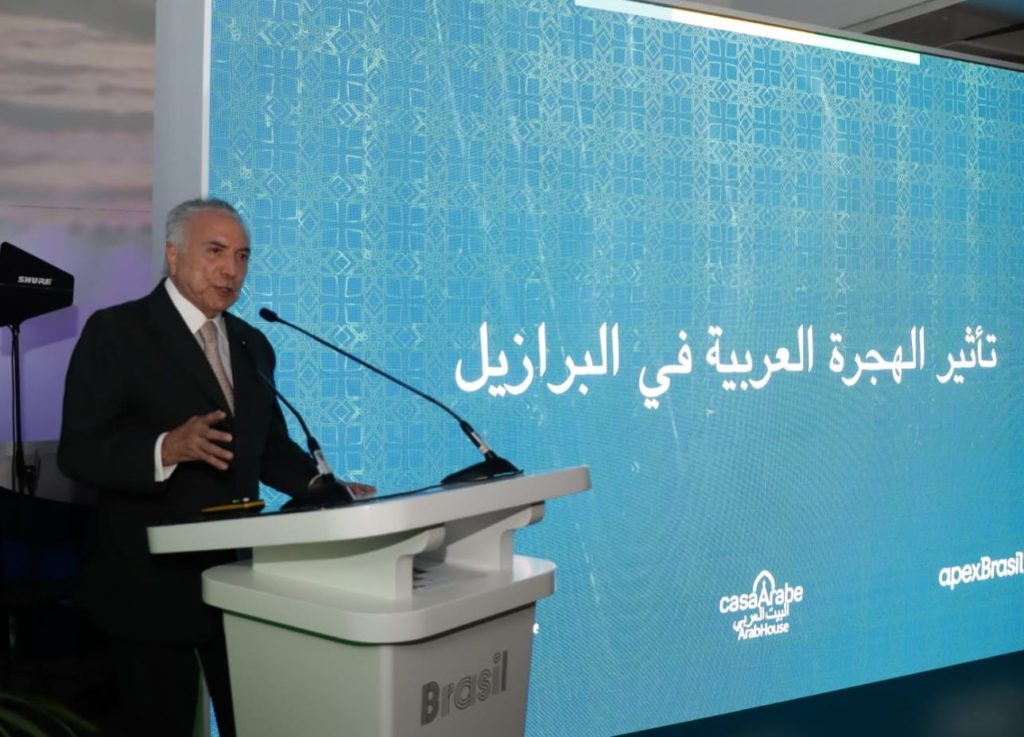São Paulo – This Sunday (27), many Arab authorities and business people learned more about the ties uniting their nations to Brazil beyond trade. The Arab Brazilian Chamber of Commerce (ABCC) hosted the event “The Legacy of the Arab Immigration in Brazil” at the Expo 2020 Dubai restaurant in the United Arab Emirates. Speakers from both regions talked about the migratory links between the Arab countries and Brazil. The event celebrated the National Day of the Arab Community in Brazil on March 25.
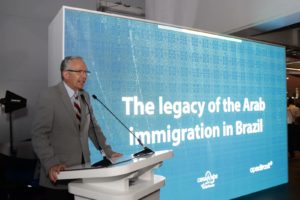
The director of the ABCC’s office in Dubai, Rafael Solimeo, master of ceremonies at the event, told ANBA about the results of this approach to immigration. According to him, many Arabs at the event were able to learn there is something more uniting them with Brazil, in addition to significant trade exchanges. “Their perception of Brazil changed after the event; they now know we are even closer,” said Solimeo.
The ceremony was attended by leaders and business people from the UAE and Gulf region, representatives of pavilions from different Arab nations exhibiting at Expo 2020 Dubai, members of the Union of Arab Chambers (UAC), in addition to a delegation from the Austro-Arab Chamber of Commerce (AACC), among other groups. The event took place with the support of the Brazilian Trade and Investment Promotion Agency (Apex-Brasil), UAC, and the League of Arab States.

The lecturers who gave the dimension of the Arab-Brazilian relationship were the commissioner general of Brazil at Expo 2020 Dubai, General Elias Rodrigues Martins Filho; the secretary-general of the ABCC, Tamer Mansour; the ambassador of Brazil to the UAE, Fernando Igreja; the secretary-general of the UAC, Khaled Hanafy; and the former president of Brazil, Michel Temer (opening picture), the keynote speaker.
Son of Lebanese parents, Temer told of his experiences in the Arab world, bringing the reality of a man of Arab descent who conquered a notorious space in Brazilian society and politics closer to the participants. He was president of Brazil between August 2016 and January 2019, during which time he made several incursions to strengthen ties with the Arab world. In 2020, he headed a mission with humanitarian aid from Brazil to Lebanon when the Arab country suffered an explosion in the Port of Beirut.
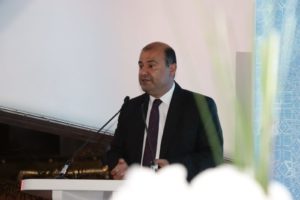
Likewise, General Martins Filho, Igreja, and Hanafy also showed the convergence points between the two regions, reporting on trade data and facts and exposing immigration ties. Hanafy spoke of the vital role the ABCC plays in this approach.
The secretary-general of the ABCC presented the history of the relationship between the Arab countries and Brazil, which began in 1500, when Brazil was discovered, with the presence of people of Arab origin in Pedro Álvares Cabral’s caravan. Brazilian emperor Pedro II visited Arab countries. In the following years, there was a strong flow of Arab migration to Brazil, which continues to the present time for distinct reasons.
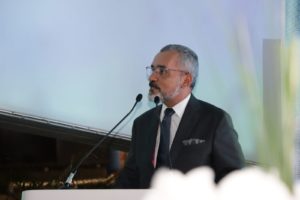
The presentation pointed out the path Arab immigrants and their descendants took in Brazil, from their arrival to work with commerce to their significant role in developing medicine, law, politics, and other segments in the country. Today, the Arab community totals 12 million people in Brazil, or 6% of the country’s population, according to data presented by Mansour, based on a survey carried out by the H2R Pesquisas Avançadas institute and the former Ibope Inteligência at the request of the ABCC.
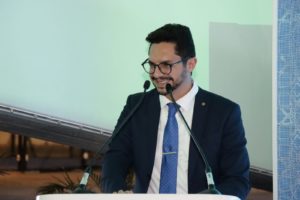
The survey also showed most of the Arab community in Brazil came from Lebanon, followed by Syria. It also points out this colony represents an expressive group in the A and B classes in the country, and it occupies leadership roles in national companies and associations. Mansour told the participants most of the descendants and Arabs who live in Brazil still preserve the culture of their country of origin through cuisine, language, religion, and music.
After the ceremony, event attendees were invited to a cocktail party at the venue. In addition to the meeting in the UAE, the ABCC also held activities to commemorate the National Day of the Arab Community in Brazil. In partnership with the São Paulo Immigration Museum, lectures were given, and cultural activities were promoted on Saturday (26) and Sunday.
Translated by Elúsio Brasileiro



